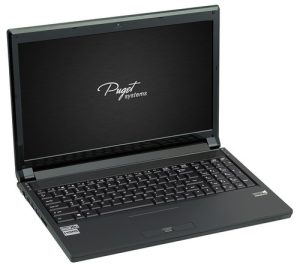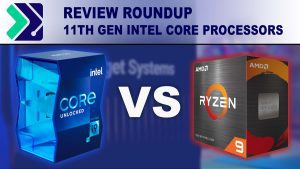Adobe Premiere Pro – NVIDIA GeForce RTX 3080 Ti Performance
NVIDIA’s new GeForce RTX 3080 Ti is here, touting more performance and higher VRAM than the RTX 3080 – although with a larger price tag to match. In this article, we will look at how it performs in Premiere Pro compared primarily to the RTX 3080 and RTX 3090.
Adobe After Effects – NVIDIA GeForce RTX 3080 Ti Performance
NVIDIA’s new GeForce RTX 3080 Ti is here, touting more performance and higher VRAM than the RTX 3080 – although with a larger price tag to match. While After Effects does utilize the GPU for a number of effects, is the higher price worth it?
Outstanding Performance of NVIDIA A100 PCIe on HPL, HPL-AI, HPCG Benchmarks
The NVIDIA A100 (Compute) GPU is an extraordinary computing device. It’s not just for ML/AI types of workloads. General scientific computing tasks requiring high performance numerical linear algebra run exceptionally well on the A100.
Run “Docker” Containers with NVIDIA Enroot
Enroot is a simple and modern way to run “docker” or OCI containers. It provides an unprivileged user “sandbox” that integrates easily with a “normal” end user workflow. I like it for running development environments and especially for running NVIDIA NGC containers. In this post I’ll go through steps for installing enroot and some simple usage examples including running NVIDIA NGC containers.
MetaHumans – a look past the Hype
Epic released their MetaHuman Creator tool in early access. Let’s look past the social media hype and into what it actually offers, and who will be using it professionally.
A Look back at Puget Laptops
This article gives a glimpse of Puget System’s history with laptops including why we no longer offer laptop models, what that means if you currently have a Puget Laptop, and if Puget Systems will ever carry laptops in the future.
Configuring Software Raid Within Windows 10
Most computer users have no need for more than a single drive in their computer, or perhaps a few individual drives if additional storage space is required. There are certain workflows and use cases where features of a RAID – like larger total volume capacity or data redundancy – may be extremely helpful. For large arrays, redundant boot drives, or advanced RAID modes we strongly recommend using a dedicated hardware controller card, but for simple configurations like mirroring or pooling there are options within Windows 10 which can be used without needing special hardware. This guide will cover a couple of those options and how to set them up.
An Introduction to VPNs (Virtual Private Networks)
A VPN (virtual private network) is becoming the go-to solution for people all around the world. While the subject may seem confusing, we break it down in simpler terms and help provide some solutions that might work well for you!
Intel Rocket Lake Compute Performance Results HPL HPCG NAMD and Numpy
The new Intel Rocket Lake CPUs have been officially released. There were numerous posts and reviews before the official release date of March 30 2021, but I haven’t seen anything about the numerical compute performance. I’ve had access to a Core-i9 11900KF 8-core CPU and have compared it with (my own) AMD 5800X system.
11th Gen Intel Core CPU Review Roundup
Intel’s new 11th Gen Core processors are here, with significant improvements including an advertised 19% improvement in IPC (instructions per clock), but with a drop in total core count on the high end. This makes it hard to estimate how each model will perform in the real world without application and workflow specific benchmarking and testing.






